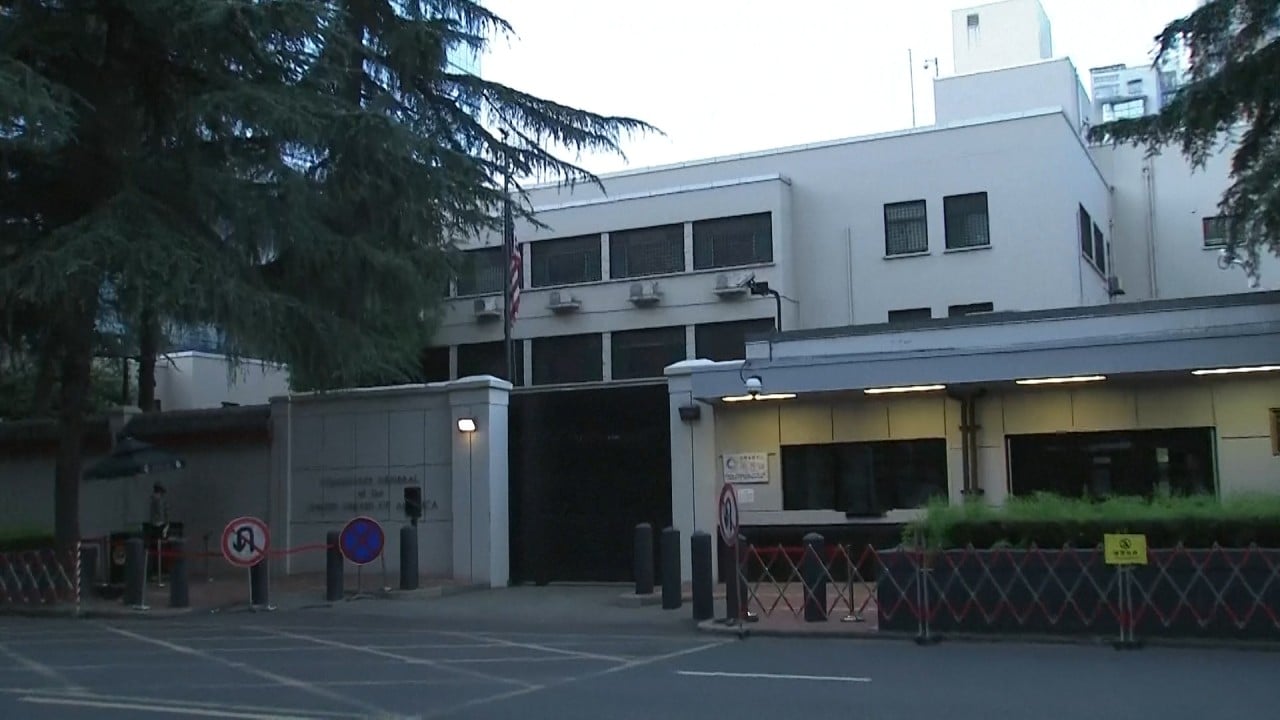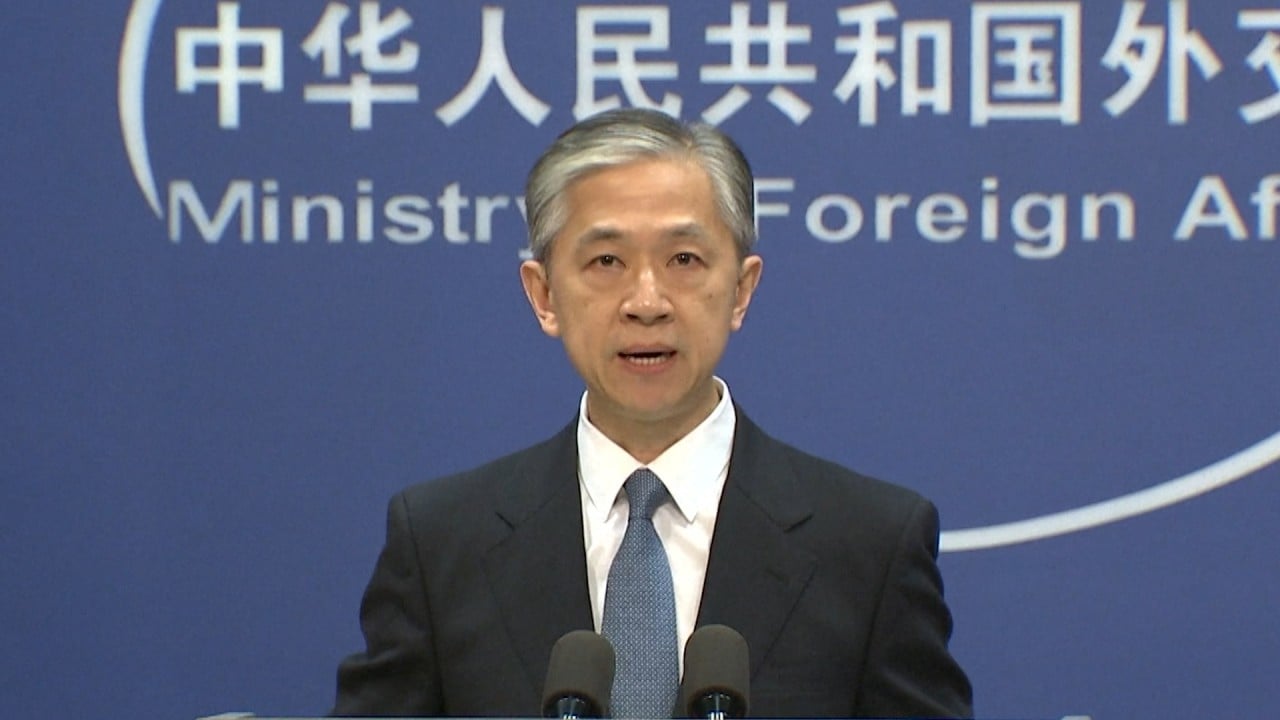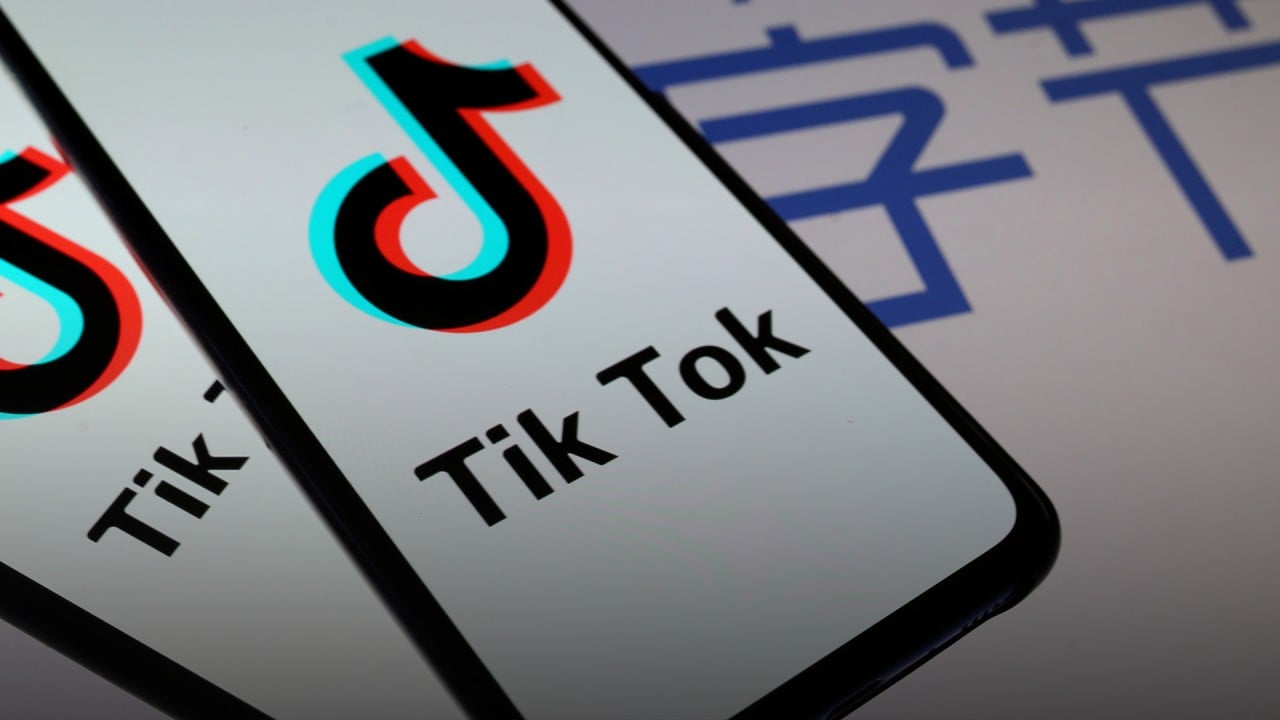
China-US relations: Beijing lays out bottom lines, ‘has no plans to unseat superpower’
- Foreign Minister Wang Yi offers first major response to US Secretary of State Mike Pompeo’s speech last month describing engagement with China as a failure
- Beijing could be looking beyond the presidential election to the next American administration, analyst says
Wang’s remarks were Beijing’s first comprehensive response to Pompeo’s address at the Richard Nixon Presidential Library on July 23 when he took aim at the Communist Party and declared that the US’ engagement with China was a failure.
In the interview, Wang rejected Pompeo’s criticism but also warned that China-US ties were “facing the gravest challenge” in more than four decades.
He said Beijing rejected any attempt to create a new Cold War or revive McCarthyism. Instead, it stood ready to restart dialogue with Washington at all levels to ease the tensions and to “put in place a clear-cut framework” in the relationship, he said.

01:27
US consulate in Chengdu shut down in response to closure of China’s diplomatic mission in Houston
“Today’s China is not the former Soviet Union. We have no intention of becoming another United States. China does not export ideology and never interferes in other countries’ internal affairs,” Wang said.
China-US relations: why Wang Yi went back to Wolf Warrior mode after offering an ‘olive branch’
“Our message is quite clear: we urge the US to stop acting with arrogance and prejudice, but enter into constructive dialogue with us on an equal footing,” Wang said.
Analysts said Beijing might be looking beyond the election, sending a message to both the political elites in Washington and the rest of the world that it was a sensible actor in contentious tensions and a responsible defender of international rules.
Chen Long, a partner at independent research agency Plenum, said China was taking a long-term view, pinning the hope of de-escalation on a new US administration under the presumptive Democratic nominee Joe Biden, the leader in the polls.

01:15
China suspends Hong Kong extradition treaties with Canada, Australia, UK
“Minister Wang’s remarks could be a message to Joe Biden, whose camp has built up a huge team of foreign policy and national security experts,” Chen said.
“It could also be out of consideration for a clear approach to the US as [China] is laying out the next five-year development plan and a longer-term ‘2035 vision’, the major missions for a plenary session of the Communist Party to be held in October.”
Wang’s interview covered a wide range of issues and expanded on his earlier proposal for a phased-in approach to address disputes and put relations back on track.
He underlined “clear red lines” for Beijing, insisting that the US must “abandon its fantasy of remodelling China to US needs. It must stop its meddling in China’s internal affairs, and stop its irrational cracking down on China’s legitimate rights and interests.”
China under pressure ahead of trade deal temperature check
“China never intends to and will never interfere in the US election and other US internal affairs,” Wang said.
He called the South China Sea “a common home for countries in the region” and said it should not become “a wrestling ground for international politics”. He also said the “zero-sum mentality” should be abandoned and the two sides should work together on pandemic prevention and economic recovery, playing responsible roles in multilateralism.
He defended China’s response to the pandemic and stressed that Hong Kong was an internal affair for China.
Beijing was not interested in a diplomatic fight but would not shy away from hitting back, he said.

03:07
Stop offering ‘untrusted’ Chinese apps like TikTok and WeChat, Washington urges US tech companies
Chen of Plenum, however, expected the tension to continue at least in the short term.
“On diplomatic issues we expect to hear more noises to further impair bilateral relations in the coming three months ahead of the November election,” he said.
Xi Jinping braces for turbulence ahead as US relations deteriorate
And soon after the release of the interview, the US State Department urged US app stores to remove “untrusted” Chinese-owned apps, including messaging platform WeChat.
The call marked an expansion of the US’ “clean network” campaign which has also targeted Chinese-owned video streaming platform TikTok.

01:14
Trump gives Microsoft 45 days to buy TikTok from China’s Bytedance
Liu Weidong, a US-China relations specialist at the Chinese Academy of Social Sciences, said China had been sending goodwill messages to the US administration but the White House was deliberately sharpening the conflicts in the interests of its presidential campaign.
“[Wang is also sending] a message to the US voters … that China is not responsible for derailing China-US ties,” Liu said.
“We need to keep calm and refrain from becoming too contentious or seeking reciprocity on every issue, otherwise it would impair our global image.”
Shi Yinhong, an adviser to China’s cabinet and an international relations professor at Renmin University in Beijing, doubted whether the calls for dialogue would ease tensions.
“We cannot underestimate the US determination for full-fledged containment of China, nor can we underestimate the deterioration of the relationship,” Shi said.
But there were some areas where talks could be effective – both sides should discuss how to avoid military clashes in the South China Sea or the Taiwan issue to prevent the US from radically changing the one-China policy, he said.
“We need to figure out detailed conditions or compromises for negotiations over some key issues and stick to them with the new US administration, not just have goodwill talks with no real content,” Shi said.

